They’re Kidnapping People for Money in Syria
The Syrian civil war has given rise to a wave of kidnappings and ransoms as desperate members of the opposition movement struggle to support themselves and their cause, Patrick Cockburn writes at The Independent.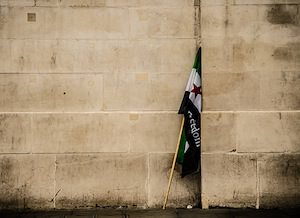
The Syrian civil war has given rise to a wave of kidnappings and ransoms as desperate members of the opposition movement struggle to support themselves and their cause, Patrick Cockburn writes at The Independent.
Coupled with its inability to provide basic security, the opposition’s horrific hostage-taking is working to discredit the movement in the eyes of locals and its would-be supporters abroad, making Bashar al-Assad’s regime seem desirable by comparison. “The methods of a police state begin to appear acceptable if they mean that your children can go to school in safety,” Cockburn writes.
The rise of kidnappings has sent waves of terror throughout areas belonging to all social classes, but mostly in rebel zones. “People are more terrified by an ever-present risk that they, their children or other relatives may be kidnapped than they are by a more momentary fear of being hit by a shell, a bomb or a bullet.” These crimes often take place in the shadows. Perpetrators don’t want to be caught, and wealthy victims don’t want to be identified out of fear they will be targeted again.
“[M]ost abductions are carried out by criminal gangs working for profit,” Cockburn writes. Sometimes they are “tit-for-tat actions between hostile communities, either as a form of vengeance or to enable an exchange of hostages for a person held by the other side.” Sometimes it can be difficult to tell whether a person was seized for commercial or political reasons.
Peter Bouckaert, the Geneva-based emergencies director of Human Rights Watch, told the website Syria Deeply that abductions are on the increase: “The kidnappings have been going on for about a year,” he said. “It’s really intensified. It started mostly when fighting broke out in Aleppo, and has developed and grown since then into a broader trend across many parts of Syria, and is also spilling into neighbouring countries.”
Kidnapping gangs are becoming better organized in a way Cockburn says parallels the situation in Iraq in 2003. Informants were offered cuts of a ransom for identifying vulnerable and lucrative targets, and people selling houses in Baghdad would “do so without publicity because neither the seller nor the buyer wants it known that a large sum of money is about to change hands.” Wealthy doctors were favorite targets because kidnappers could gain easy access to them by pretending to need medical attention.
— Posted by Alexander Reed Kelly.
Your support matters…Patrick Cockburn at The Guardian:
Sometimes the identity and motive of the kidnappers is frighteningly obscure, and it never becomes clear if people are being held for ransom or are already dead. What happened, for instance, to two eminent Christian clerics from Aleppo, the Greek Orthodox Bishop Boulos Yazigi and his Syriac Orthodox counterpart Yohanna Ibrahim, who went on a mission of mercy on 22 April this year into rebel-controlled territory to try to free two kidnapped priests? They were themselves abducted by a jihadi gang, which was reportedly led by Chechens, and nothing has been heard from them since, leading to fears they were murdered.
You do not have to go far in Syria or among well-off Syrians abroad to find stories of relatives kidnapped and bought back or still being held prisoner. Earlier this summer in Damascus, the Syrian deputy foreign minister, Faisal Mekdad, who comes from near Daraa in the south, told me that his 84-year-old father had been kidnapped in May and held for 14 days. His nephew had similarly been abducted and mistreated. Two senior Syrian army officers asked me not to mention their names for fear that family members might be kidnapped or killed. The situation in Syria is now getting as bad as Iraq after 2003, when I did not know a single well-off Iraqi family that had not had a close relative grabbed by gunmen and held for ransom.
… The criminalisation of the opposition in Syria is following the same pattern as in Chechnya after 1999 and in Iraq after 2003. In all three cases, heroic militiamen who may have begun as defenders of their community became indistinguishable from bandits. Their former supporters came to feel that, as cruel and violent as the authorities might be, the alternative was even worse. In Chechnya, I remember going see President Aslan Maskhadov in the Chechen capital, Grozny, at the start of the Second Chechen War and noticing that his presidential guard was more worried that I and the party of foreign journalists I was with would be kidnapped than they were by possible attacks by Russian aircraft.
Independent journalism is under threat and overshadowed by heavily funded mainstream media.
You can help level the playing field. Become a member.
Your tax-deductible contribution keeps us digging beneath the headlines to give you thought-provoking, investigative reporting and analysis that unearths what's really happening- without compromise.
Give today to support our courageous, independent journalists.

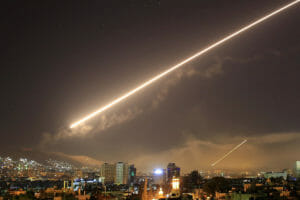
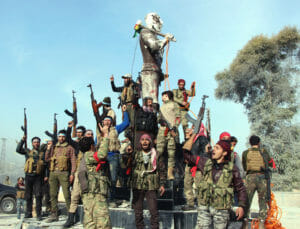
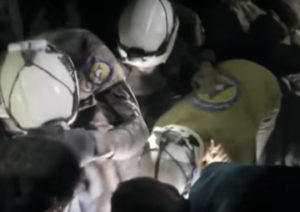

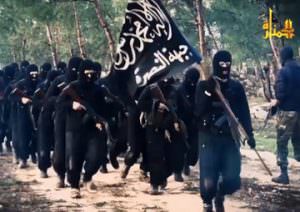
You need to be a supporter to comment.
There are currently no responses to this article.
Be the first to respond.